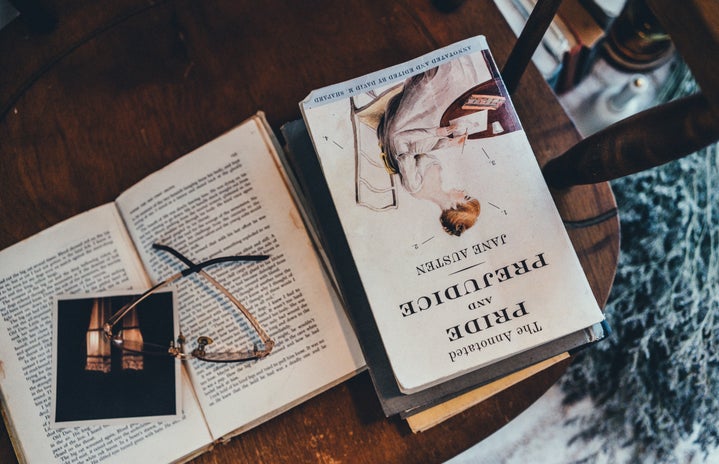As many know, literature itself has the power to transform both citizens and society. Through reading, there is a process of amplification of the critical sense and sensitivity of each one, which is able to transform the individual – and, consequently, the collective. Heading up to national productions, Brazilian literature is known worldwide for the diversity of genres, narratives and character construction.
Since then, many names and works have become known with the development of the literary schools. In order to increasingly broaden reader’s perception of classics, Her Campus separated three Brazilian classics that changed literature. Throughout this article, you will be able to learn more about each of them through the point of view of an expert on the subject.
According to Eveline Fátima dos Santos, a Portuguese Language teacher graduated from USP, three Brazilian authors who deserve to be highlighted are: Machado de Assis, Graciliano Ramos and Guimarães Rosa. “They are known worldwide and translated into multiple languages because the expressions of man, place and time portrayed in their works are universal”, Eveline says. “Everyone recognizes themselves in these stories. Not to mention the originality and the power in the languages of each one”, she concludes.
Below you will find a list of the main books by these authors that have definitely marked Brazilian literature.
- The Posthumous Memoirs of Brás Cubas, Machado de Assis
-
Considered one of the most important Brazilian books of the 19th century and marked by the transition from Romanticism to Realism, The Posthumous Memoirs of Brás Cubas is a description of Brás Cubas’ life dedicated to “the worm that first gnawed the cold flesh of his corpse”.
Machado de Assis gives voice to a deceased narrator who, with a lot of daring, refinement and acid humor, mocks the features of the people he lived with, thus becoming one of the most popular and memorable characters in classic literature.
- Barren Lives, Graciliano Ramos
-
Presenting a deep portrait of Brazilian society and its social problems, Barren Lives narrates in third person the critical and sad story of a family of rural migrants who are forced to move constantly, due to their region’s drought, in search of better living conditions.
Belonging to the second phase of Brazilian Modernism, this work makes a strong complaint of the struggle and issues of the people who live in the northeastern hinterland. Although there are small peaks of happiness, the book is essentially marked by these problems as well as the animalization of these characters who, despite all the difficulties, remain hopeful with the end of the drought.
- The Devil to Pay in the Backlands, Guimarães Rosa
-
Still following this topic, Guimarães Rosa portrays in this work the life of the jagunço Riobaldo on a path of discovery both of the hinterland and himself. Marked by its non-linearity, the work is focused on the description of characters, places, the protagonist’s ramblings and conflicts between the gangs of jagunços.
The universal attribution to the Minas Gerais hinterland turns The Devil to Pay in the Backlands into one of the most important Brazilian classics ever made, highlighting the originality, the unique language of the author – marked by neologisms – and universal matters that transcend what it is to be a human, such as love, violence and strength.
- “The rapture we can have while reading or after reading a classic is indescribable”
-
These books were carefully selected by teacher Eveline Fátima who has studied them with her students for years. “These are works that renewed the textual genre, language and social values presented by literature. All brought a man rediscovering himself.” A primordial factor highlighted in each one of them is the universality in the writing and the easy identification with the shown characters.
Eveline reinforces the importance of academic guidance as a method to encourage the reading of classics and tells how a beautiful experience is to carry out a collective reading. “The rapture we can have while reading or after reading a classic is indescribable,” she says. “In the classroom I, as a teacher, felt another thrill when I managed to share the classic with the students, seeing the sparkle of discovery in their eyes… Reading collectively is another pleasure”, the teacher concludes.
Although Brazilian literature is provided or even worked on in schools through bureaucratic rules, it is necessary for the reader to mature in order to start reading a classic book. “Reading a classic is a desire and when you want, the rules for reading, even at school, can be freer”, says Eveline. Therefore, giving that initially uninteresting mandatory book a second chance or starting to read a Brazilian book are great ways not only to encourage national literature but also to open your eyes to new horizons and perspectives.
——————————————————————-
The article above was edited by Isabella Gemignani.
Liked this type of content? Check out Her Campus Casper Libero for more!


